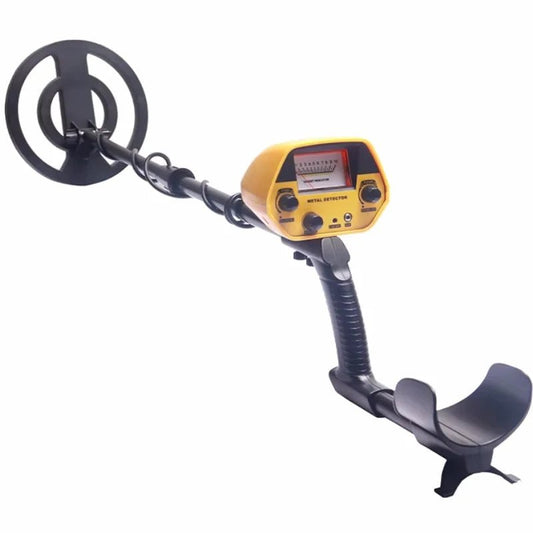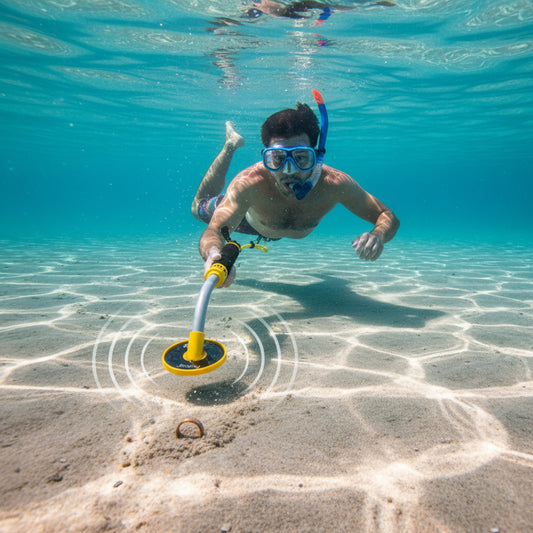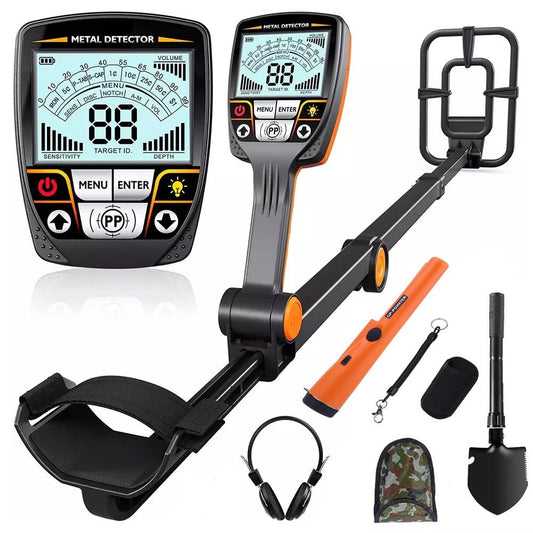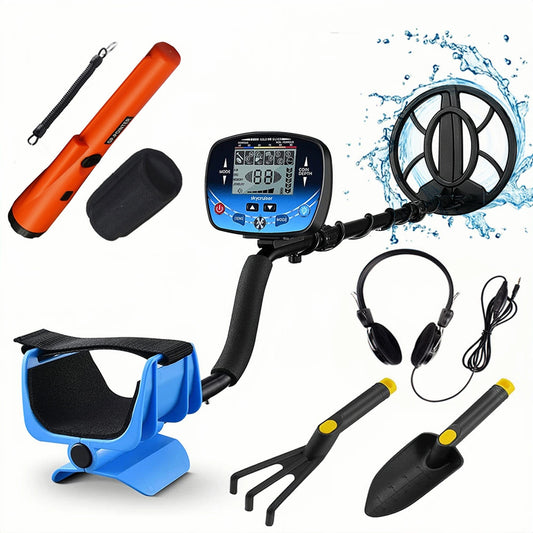
Metal Detecting in France: Beach Detecting, Permissions, and Regional Tips
Share
France’s rich history and stunning coastlines make it a magnet for metal detecting enthusiasts. From the pebbled beaches of Nice to the windswept shores of Brittany, there’s no shortage of places to hunt for coins, jewelry, and lost relics.
However, France’s strict archaeological heritage laws mean you must be well-informed before swinging your detector.
This guide covers everything you need to know about metal detecting in France—beach detecting, permissions, and essential regional tips for a legal and rewarding experience.
Is Metal Detecting Legal in France?
Metal detecting in France is legal, but highly regulated. French law protects the country’s archaeological heritage and imposes strict requirements on where, how, and even why you can detect.

Key legal points:
-
Permits Required: You must obtain administrative authorization from the regional prefecture for most metal detecting activities, including on your own land or private property.
-
Written Permission: For private land, you need written consent from the landowner. For public land, you need permission from the local municipality.
-
Archaeological Sites: Detecting for objects of archaeological, historic, or artistic interest is strictly forbidden without a permit. All finds over 100 years old belong to the state.
-
Protected Zones: Archaeological sites, national parks, war graves (such as the Normandy D-Day beaches), and areas of ecological significance are off-limits.
-
Fines and Confiscation: Unauthorized detecting can result in fines up to €1,500 and confiscation of your equipment.
Beach Detecting in France

Beaches are among the most accessible places for metal detecting in France, but local rules still apply.
What’s Allowed
-
Many beaches permit metal detecting, especially for modern lost items like coins and jewelry.
-
Nice, Cote d’Azur, and La Rochelle are popular spots for beach detecting, with fewer restrictions compared to archaeological zones.
-
Written or verbal permission from the local mairie (town hall) is recommended, as some municipalities require it.
What’s Not Allowed
-
Normandy’s D-Day landing beaches are strictly off-limits due to their status as war graves and historical sites.
-
Protected wildlife areas (such as bird nesting beaches) are also prohibited.
-
Removing pebbles or sand may be restricted—always read posted beach regulations.
Tips for Beach Detecting
-
Detect early in the morning or late in the evening to avoid crowds.
-
Use a waterproof detector and sand scoop for wet sand and shallow water.
-
Always fill your holes and remove any trash you find.
Check out our article about the best tips and advices for beach metal detecting.
How to Get Permission for Metal Detecting in France

Administrative Authorization:
Apply to the prefecture of the region where you plan to detect. Your application should include:
-
Personal identification and proof of competence (experience, club membership, etc.)
-
A description of your equipment and search methods
-
A detailed map of your intended search area
-
The scientific or recreational purpose of your search
Private Property:
-
Obtain written consent from the landowner.
-
Agree in advance on how finds will be shared or reported.
Public Beaches:
-
Contact the local mairie to ask about any required permits or local rules.
-
Some towns post regulations at beach entrances.
Reporting Finds:
-
All significant archaeological finds must be reported to the Ministry of Culture.
-
Finds over 100 years old or of historical value belong to the state.
Regional Tips and Best Locations
South of France (Cote d’Azur, Provence)
-
Beaches in Nice, Saint-Tropez, and Cannes are popular for modern finds.
-
Avoid historic sites, castles, and medieval towns unless you have permits.

Brittany & Normandy
-
Brittany’s non-protected beaches offer good detecting opportunities.
-
Normandy’s beaches, especially the D-Day sites, are strictly protected—no detecting allowed.

La Rochelle & Atlantic Coast
-
Coastal areas near La Rochelle are accessible, but always check with local authorities.
-
Some rural areas in the Dordogne and Charente are rich in history but require permits.

Countryside & Rural France
-
Old farm fields, village greens, and paths can yield interesting finds—but always secure written landowner permission and check for archaeological restrictions.
Equipment and Techniques
-
Use a multi-frequency detector (e.g., XP DEUS, Minelab Equinox 800) for French soil conditions.
-
VLF detectors are effective in low-mineral soils; GPX models work well in mineralized areas.
-
Bring a pinpointer, sturdy digging tools, and a pouch for finds and trash.
Find our best tools recommendations.
Responsible Detecting and Ethics
-
Always fill your holes and leave sites clean.
-
Share finds with landowners if agreed.
-
Never detect on protected sites or remove artifacts of historical value.
-
Report significant discoveries to authorities.
What Can You Find?

Common finds on French beaches include:
-
Modern coins (euros, foreign currency)
-
Jewelry (rings, bracelets, watches)
-
Old French coins and tokens (in non-protected areas)
-
Occasional relics (buttons, buckles) in rural fields
Conclusion
Metal detecting in France is a rewarding hobby if you respect the country’s strict laws and obtain the necessary permissions. Focus on accessible beaches and non-archaeological areas, always secure permits, and report significant finds. With the right approach, you’ll enjoy the thrill of discovery while preserving France’s rich cultural heritage.




